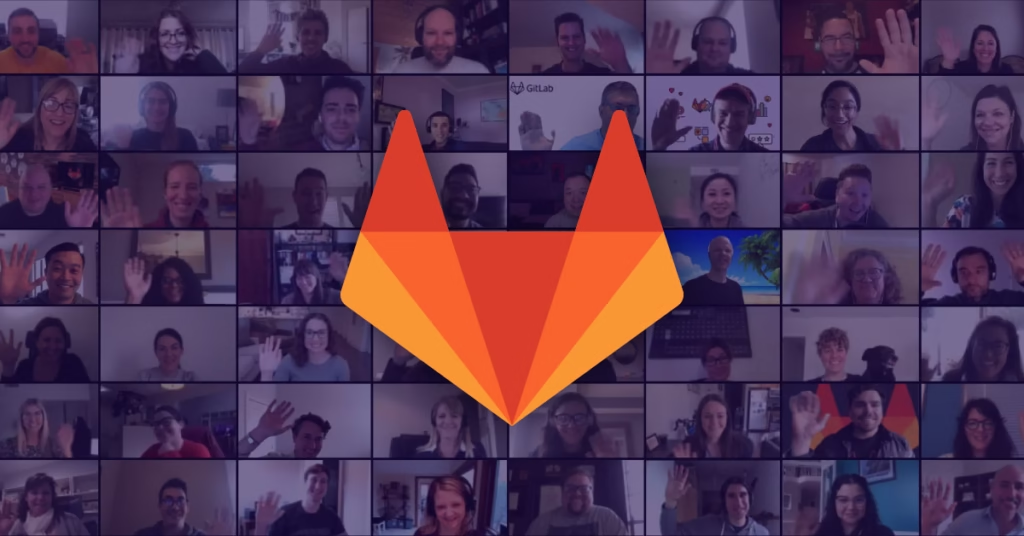
GitLab is one of the largest all-remote1 tech companies in the world. GitLab has an estimated 50 million+ users (both Paid and Free2), from startups to global enterprises, including reputable names such as NVIDIA, Thales, Deutsche Telekom, NASDAQ, Goldman Sachs, and Siemens, who trust GitLab to deliver great software faster. GitLab has been running on all-remote since 2014 and has more than 2,500 team members in 65 regions and countries.3
I have been thinking about compiling a list of GitLab’s top remote work tips for a while, and I am glad I have finally managed to present the following list. The following are my top 5 ultimate remote work tips from GitLab that you can also use to bring the best out of your existing remote work setup or help with the remote-first transition.
1. Implement Handbook-First Documentation
- Maintain a comprehensive, public handbook (2,700+ pages) as a single source of truth
- Default to written documentation over verbal explanations
- Make information accessible to all unless specifically private
- Encourage a “handbook-first” approach, where any change must be documented before implementation
Key Takeaway: Instead of relying on verbal conversations or meetings to share information, write everything down in a central, searchable document that everyone can access. When someone has a question, they should first look it up in this “company handbook” before asking a colleague.
2. Practice Radical Transparency
- Make internal communications public by default within the company
- Share reasoning behind decisions (“say why, not just what”)
- Enable asynchronous collaboration through transparent information sharing
- Maintain public visibility of processes, policies, and decision-making
Key Takeaway: Share as much company information as possible with all employees, not just executives or managers. When making decisions, explain the reasoning behind them so everyone understands the “why” and can work more effectively without having to guess or ask follow-up questions.
3. Embrace Asynchronous Communication
- Prioritise asynchronous over synchronous communication
- Make meetings optional with shared agendas and documentation
- Focus on results and impact rather than activity or hours worked
- Use formal communication channels over informal ones
Key Takeaway: Don’t require people to be online at the same time to get work done. Use written messages, recorded videos, and shared documents instead of live meetings whenever possible, so people in different time zones can contribute when it’s convenient for them.
4. Foster Self-Service and Self-Learning
- Encourage “look it up in the handbook” before asking colleagues
- Develop a self-service mentality to reduce dependency on real-time communication
- Enable autonomous work through comprehensive documentation
- Promote individual responsibility for finding information
Key Takeaway: Train employees to find answers on their own first before asking for help. This means creating really good documentation and encouraging people to search for information independently, which reduces interruptions and allows everyone to work more efficiently.
5. Measure Impact Over Activity
- Evaluate performance based on results delivered, not hours worked
- Tie individual KPIs to company OKRs with clear documentation
- Focus on outcomes and deliverables rather than presence or availability
- Support flexible working hours while maintaining accountability
Key Takeaway: Judge employees by what they accomplish, not how many hours they spend working or when they’re online. Set clear goals and measure success based on whether those goals are met, regardless of whether someone works early morning or late evening.
In addition to the above, I found the following key points on ‘what not to do‘ eye-opening and practical, in GitLab’s handbook4.
- Do not replicate the in-office experience remotely: organisations should not try to replicate the traditional in-office experience in a remote setting, as this is a fundamental misunderstanding that can damage remote work effectiveness. Remote work requires different principles, approaches, and dedicated tools.
- Do not transfer all in-person meetings to virtual: remote working is not about replacing office meetings with virtual meetings. Whether it’s a meeting or something else that you want to promote in a remote-first setup, it has to be intentional, not just a reactive step to an event (e.g., going all remote since the pandemic).
- Do not expect everyone to have an optimum workspace: remote working is still new to many people, especially for those who are in the middle of transitioning from full-time office-based to full-time remote. Inevitably, it will take some time for employees to tailor their optimum workspace.
- Do not assume that remote happens overnight: This is one of my favourite and practical tips of all. Remote working is not just another way of working; it is an art of working, and just like many skills/talents we picked up over the course of our life journey, it needs practice.
In a Nutshell
Remote working is a lifestyle change, not just another way of working. Stepping into remote working needs dedicated practice and discipline, whether you are an organisation or an individual. One way to master the art of remote work is by observing how others have successfully done it. That’s exactly the purpose of this short article. GitLab has successfully implemented remote working since 2014, and there is a lot to learn about it. Therefore, I highly recommend that you review GitLab’s handbook5 if you want to master the art of remote working successfully.
🎯 Need Expert Help?
If you’re facing challenges with remote work, I offer 1:1 coaching and tailored support to help you succeed at remote setup. Whether you’re just starting out, growing as a remote contributor, leading a team, or launching a remote-first start-up, Remote Winners offers targeted 1:1 coaching to help you thrive in a distributed world. We also provide tech consultancy services—from idea-to-product guidance to cloud deployment and cybersecurity reviews—to help organisations strengthen their technology and processes.
If you are unsure where to begin, drop us a message and we’ll be in touch.



